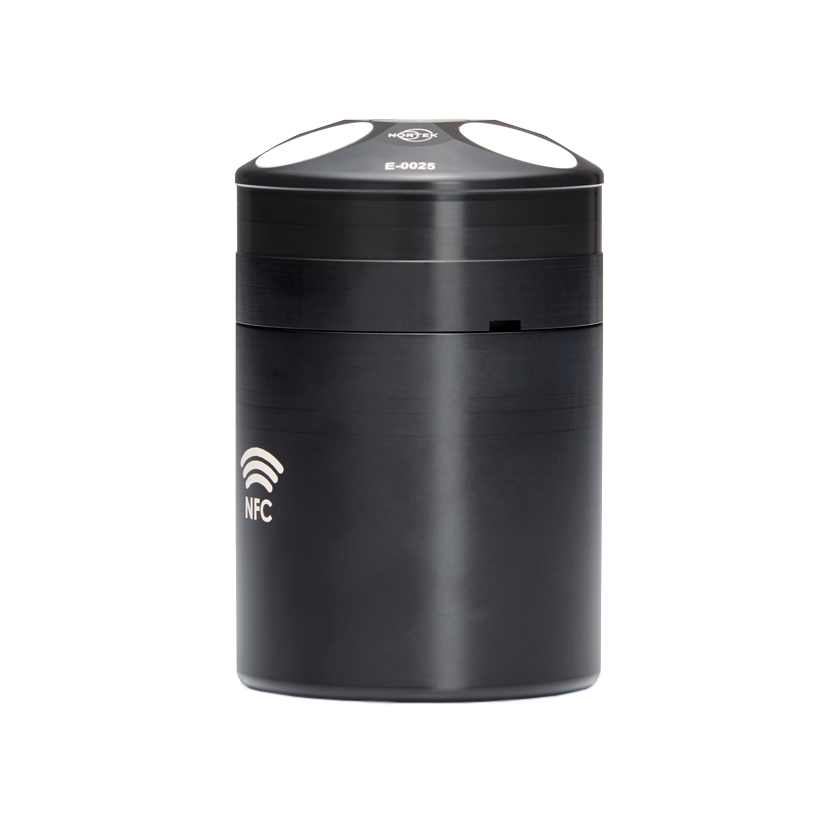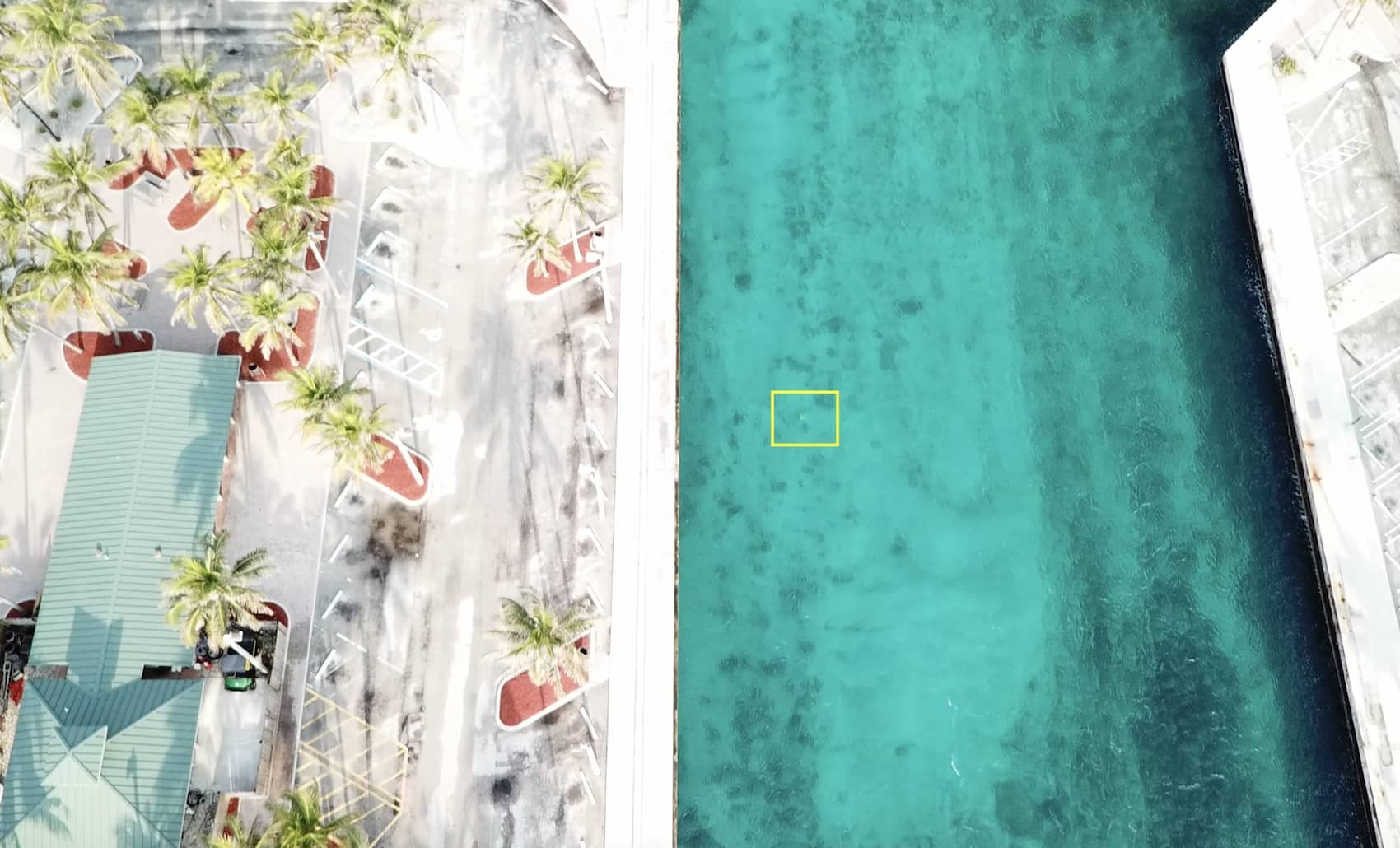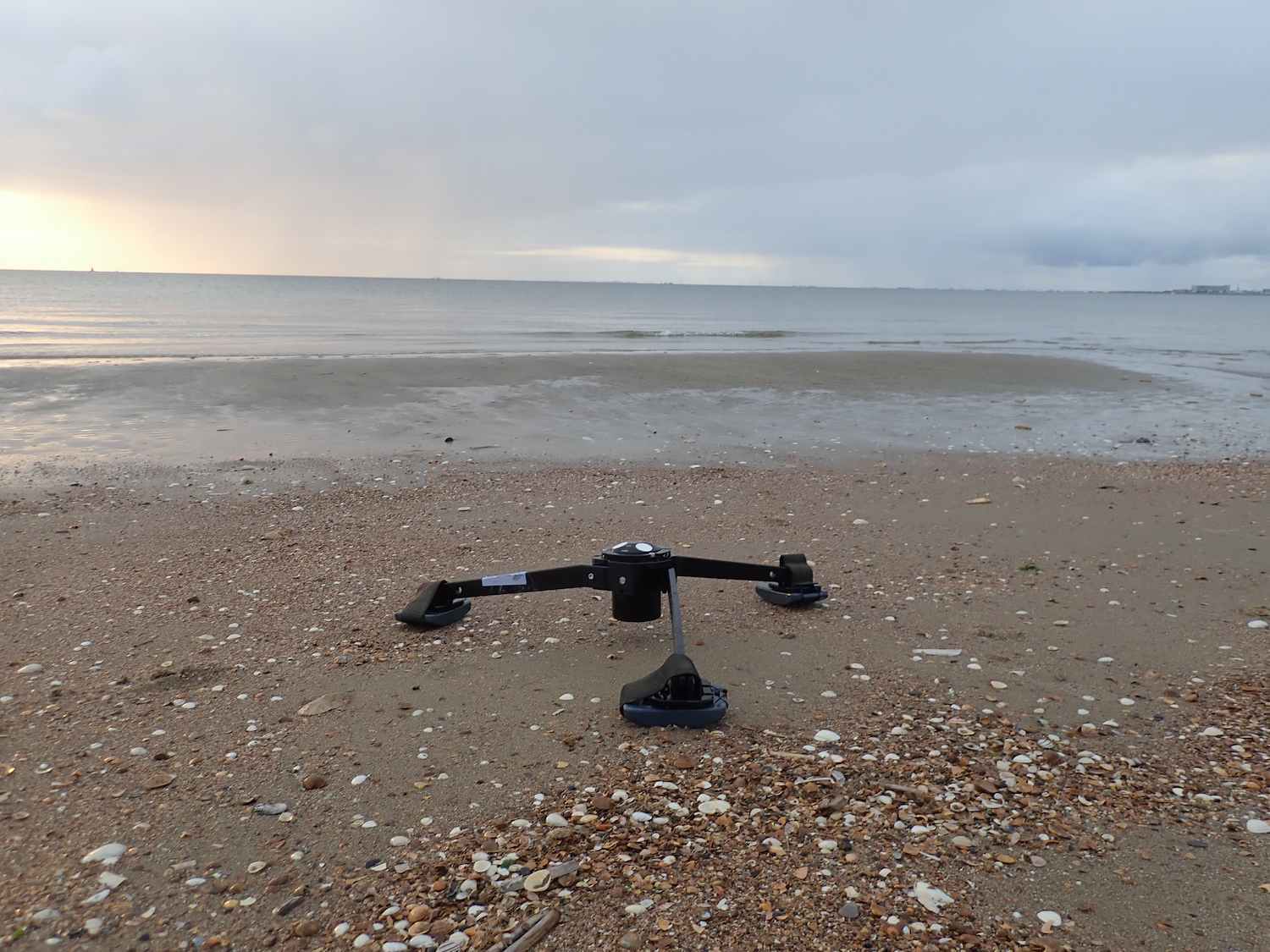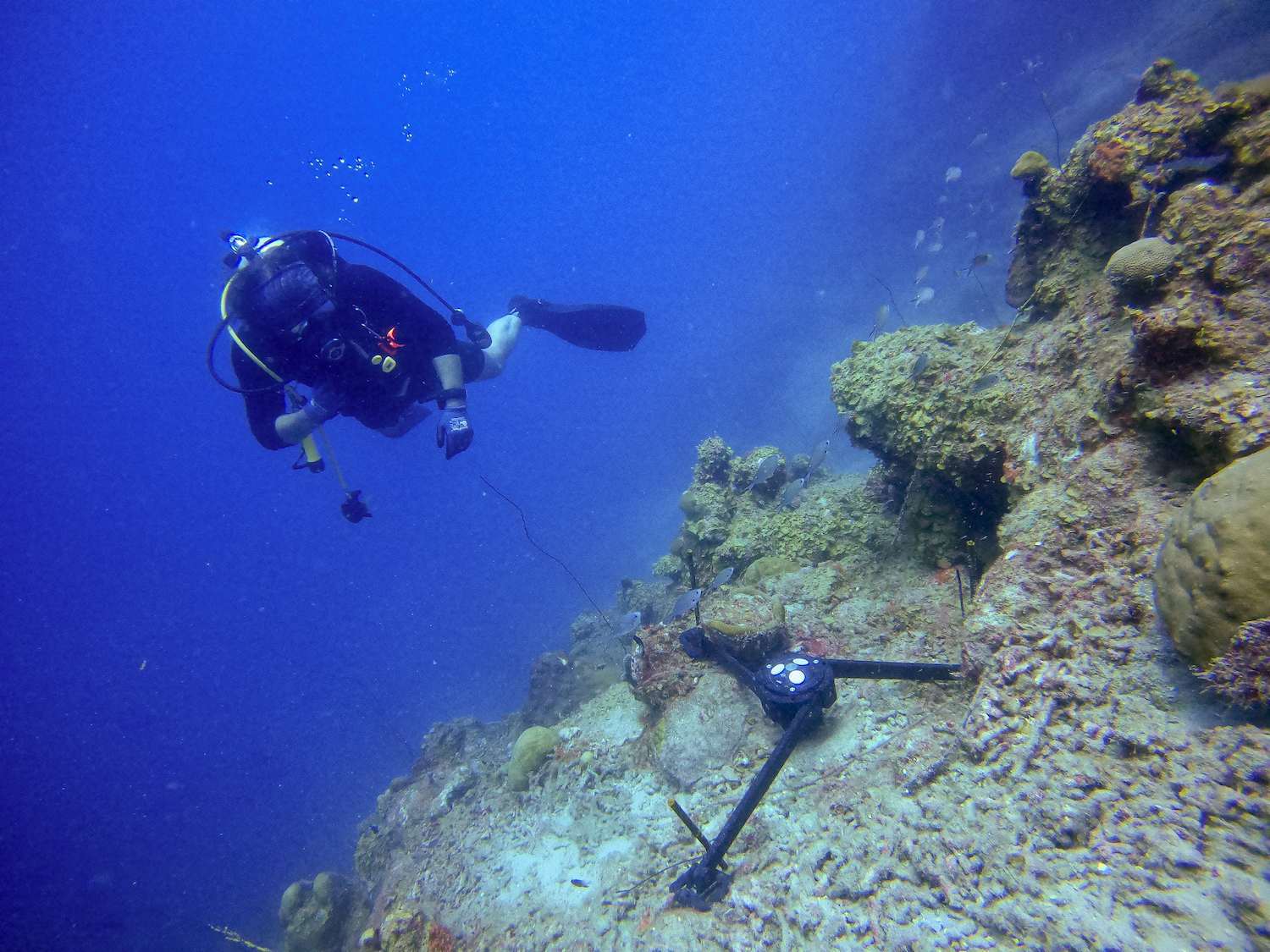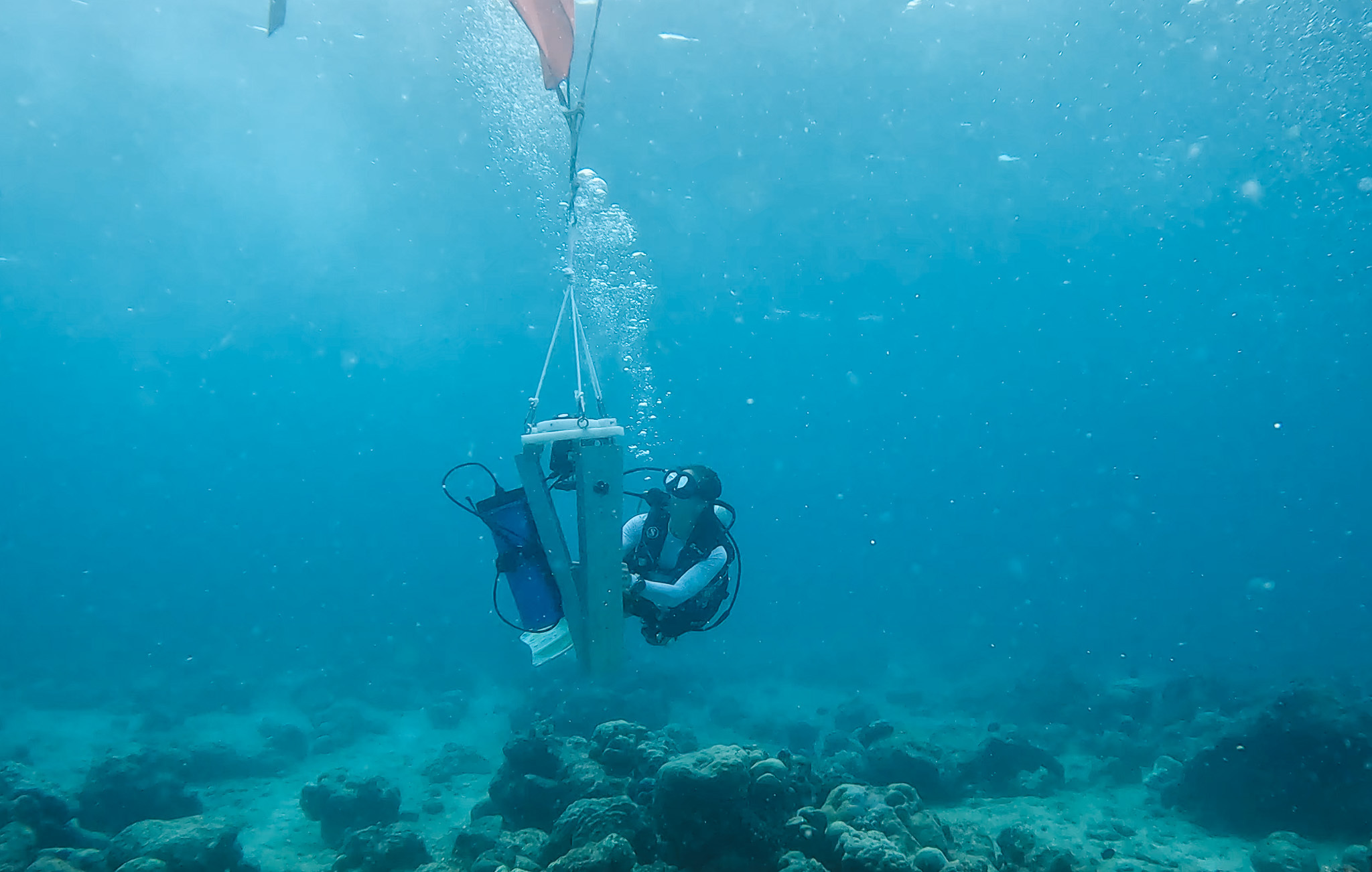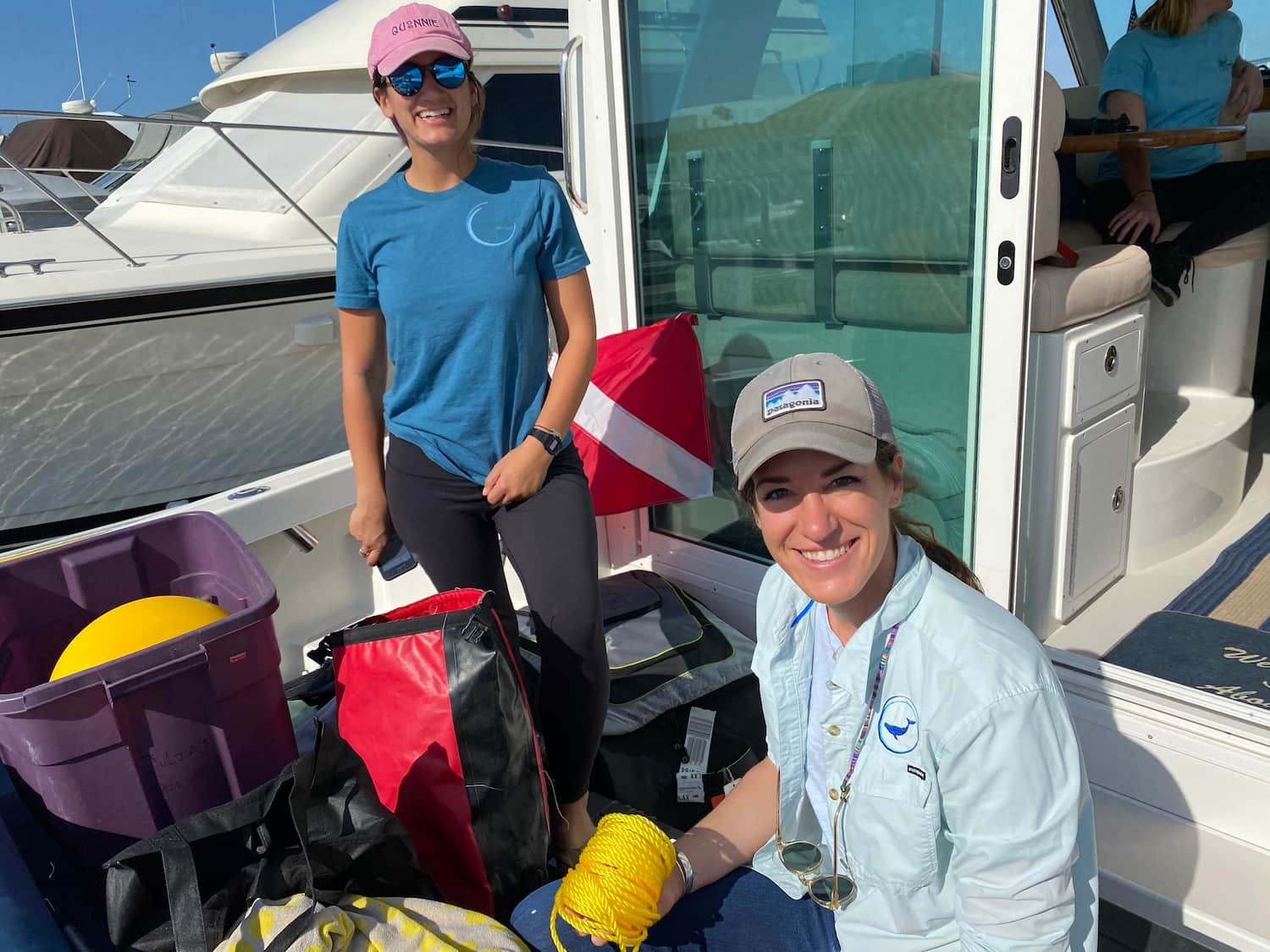
Supporting ocean conservation in reef habitats with the Eco current profiler
- User stories
Synopsis
Challenge
The team at Blue Latitudes wanted to compare fish and invertebrate species abundance at artificial and natural reef sites, and needed current measurements to analyze why they found the results they did.
Solution
Using an Eco ADCP, the team gathered current profiles with ease, deploying the system from a kayak.
Benefit
User-friendly current measurement provided the team with easy-to-understand data for their project, improving their understanding of artificial reef structures in California.
When thinking about ocean conservation, industries such as offshore oil and gas, offshore wind and fisheries are usually not the first things that come to mind. However, industries like these are going to continually exist in our oceans, so finding new ways to sustainably interact with the marine environment is going to be a crucial part of ocean conservation moving forward.
Exploring connections between people and the marine environment
The Blue Latitudes Foundation was formed in 2018, with the mission of exploring this intersection between industry and the marine environment and promoting ocean stewardship through research, education and outreach.
“Given the human demand for ocean resources, the Blue Latitudes Foundation aims to broaden the dialogue on traditional ocean conservation practices to find ways to use our oceans without using them up!” says Jacqueline Rosa, Program Coordinator at the foundation.
In 2015, Amber Sparks and Emily Hazelwood founded Blue Latitudes, LLC, a marine environmental consulting firm that unites science and design to solve complex ecological challenges associated with repurposing offshore oil and gas platforms as reefs. Recognizing the need for outreach and education in this sector, Sparks and Hazelwood created the Blue Latitudes Foundation several years later. The Foundation focuses on communicating and educating key stakeholders about innovative ocean conservation practices.
Sparks and Hazelwood discuss this mission further in an episode of Nortek’s podcast, The Other 70%.
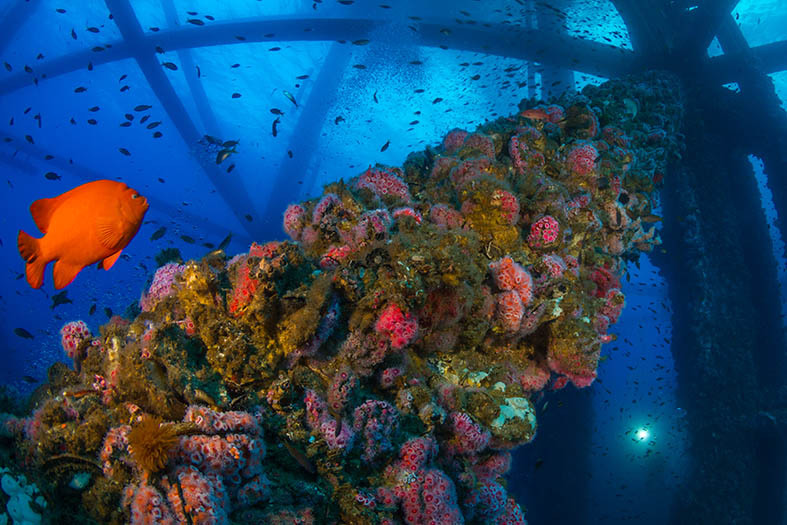
Helping ocean conservation near reef sites by understanding how the water moves
The Blue Latitudes Foundation accomplishes their mission through performing scientific field work, public education efforts, and community volunteering and outreach events. Recently, their field-based research included a new component: current measurement on these artificial reef ecosystems in Southern California with the Nortek Eco.
“The deployment of the Eco was part of a larger effort that our organization is involved in, a project where we are surveying marine biodiversity and abundance of artificial reefs found in Southern California,” says Rosa.
According to Rosa, the Blue Latitudes team is aiming to compare species diversity and fish and invertebrate abundance at several artificial reef sites, as well as draw comparisons to natural reef sites. Understanding how the water moves in these areas is important to analyzing their results.
“The data we collected and analyzed from the Eco, including information on water speed and direction throughout the water column, will be key in informing our understanding of the distribution of fish larvae, plankton and pollutant levels at the artificial reef sites we will be surveying,” Rosa adds.
Deploying a current profiler by Southern California reefs
Rosa, Hazelwood and Sparks deployed the Eco twice: once from a boat in Long Beach Harbor, and once from a kayak in La Jolla shores. The sites were shallow, with depths of only 11 m and 3.7 m respectively, and the deployments lasted between 30 minutes and an hour. The team chose sites near reefs they were surveying, one artificial and one natural.
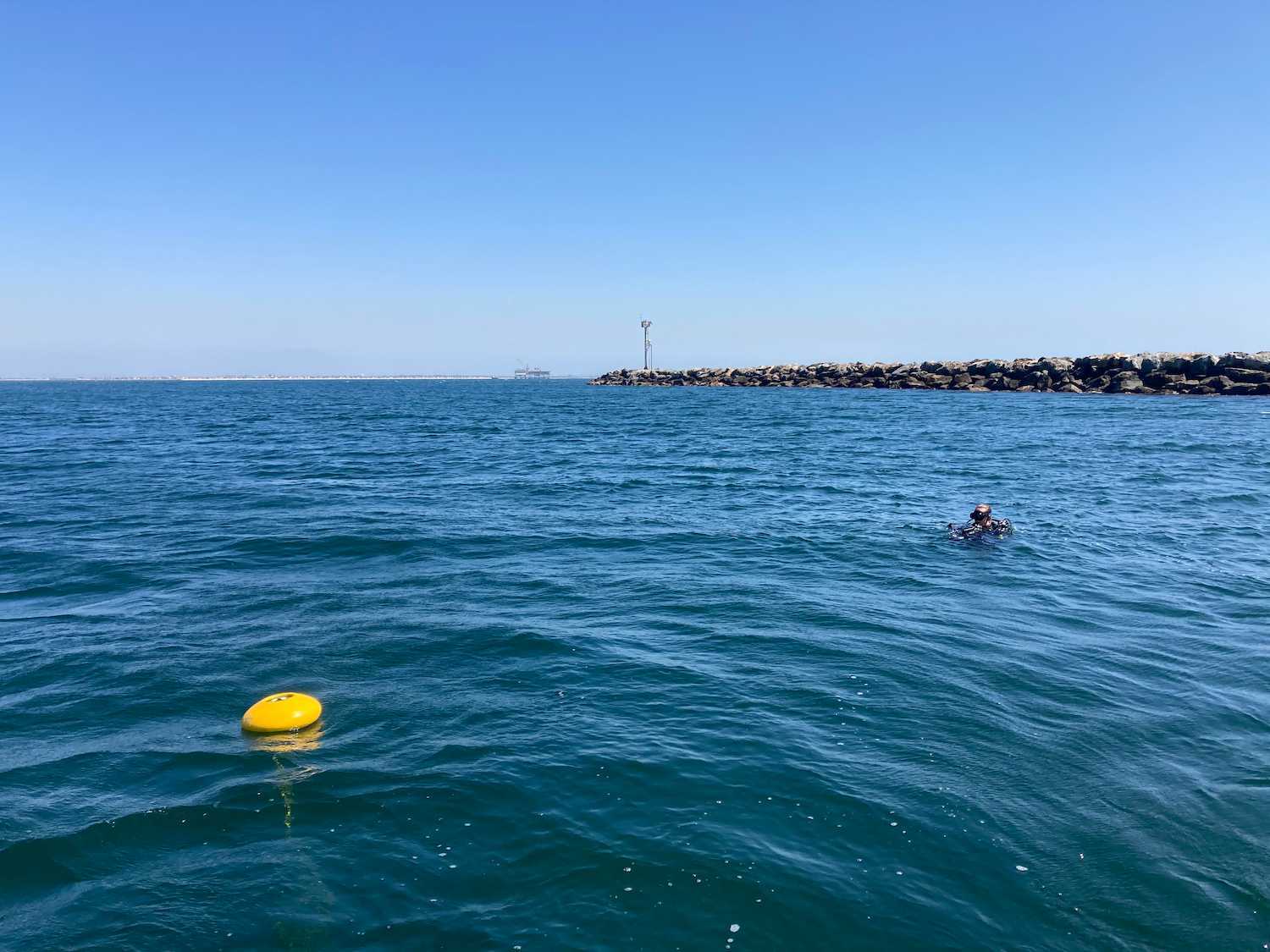
The Blue Latitudes team used the Eco buoy system to deploy the Eco ADCP from their boat and kayak. This allowed them to drop the system into the water and retrieve it at a preset time. In addition to the fact their deployment sites were shallow, Eco was a good choice for the team because they were first-time ADCP users operating with minimal equipment.
“Our first deployments with the Eco were very successful: we were excited about how portable it was, how easy it was to deploy and the detailed scientific data we were able to collect. We did not expect it to be so user-friendly!” notes Rosa.
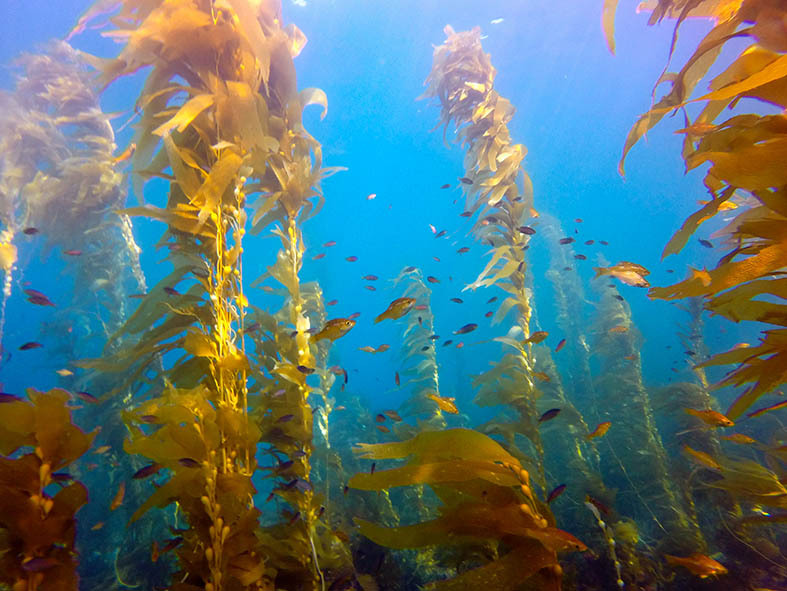
Using ADCP data in scientific research
The team was able to gather current data for both sites and easily offload their data using the Eco WebApp for their own analysis.
“Our team found the Eco valuable because it collects data accurately and independently. This saved our team time and provided us with data we can rely on! The auto-populated graphs and downloadable data (into an Excel sheet) are additionally helpful,” says Rosa.
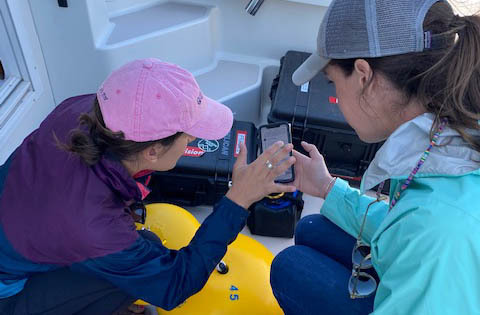
Current profiling data makes ecosystem field research more robust and comprehensive
Eco allows first-time ADCP users like the Blue Latitudes team to gather robust and accurate scientific data, without needing a strong technical background. The data the team collected will allow them to make more informed decisions and better understand the reef sites they work with.
“The Eco provided us with important data to make our field research more robust and comprehensive. We see the value of this product in our scientific application and hope to find opportunities to work with the Eco in the future,” concludes Rosa.
